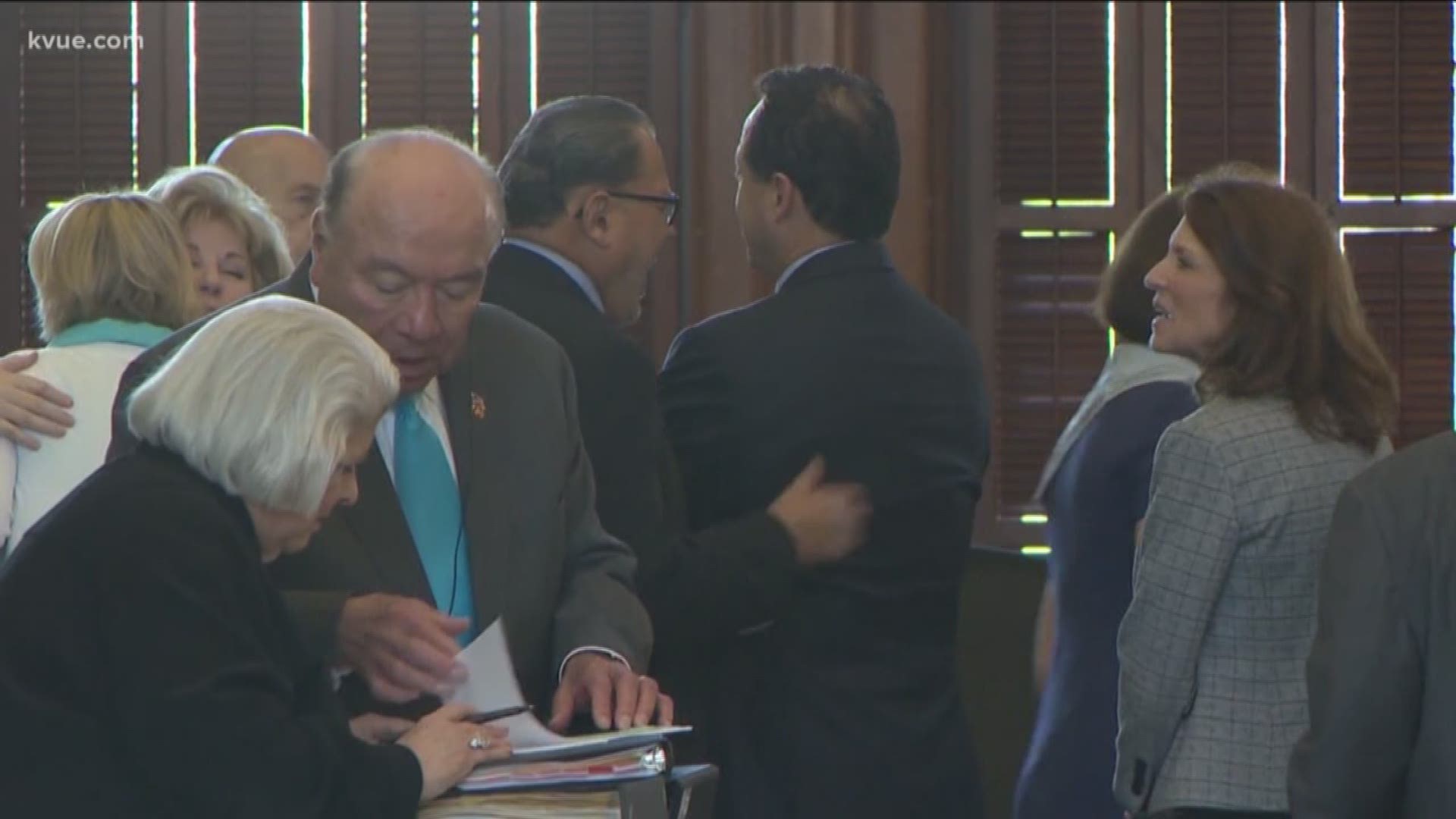AUSTIN, Texas — The Texas Senate voted unanimously to approve the state budget Tuesday afternoon. While the Senate voted on House Bill 1, the members substituted it with their version of the budget found in Senate Bill 1.
RELATED: Texas Senate passes bill banning cities, counties from giving abortion providers tax dollars
An advisory from the office of Senator Jane Nelson (R-Flower Mound), the author of the bill, notes the Senate-approved version appropriates $116.8 billion in General Revenue and $247.7 billion in All Funds. It said these totals are "within constitutional spending limits and population times inflation with 7.6 percent growth over FY 18-19 in General Revenue and 5.1 percent growth in All Funds."
"CSHB 1 sets aside $9 billion for property tax relief, teacher pay and additional state aid to school district; Specifically, it includes:
- $4B to give every teacher and librarian a $5,000 across-the-board pay raise;
- $2.7B for property tax relief and reducing the reliance on recapture;
- $2.3B in additional state aid to school districts;
- $2.4B to fund enrollment growth for public education, based on an estimated 65,000 additional students per year;
- $230M to maintain current health insurance premiums and benefits for our retired teachers;
- $157M to maintain the state's ratio of 1.1 graduate medical education slots for every medical school graduate in the state;
- an increase of $529.9M for higher education, including:
- $189.9M for enrollment growth;
- a 4-percent increase to our general academic institutions; and
- a 19-percent increase to our community college success points.
- an additional $55M to increase outpatient community mental health treatment and avoid waitlists;
- funding for 20 additional community inpatient psychiatric beds;
- a $35M increase for women's health - bringing funding for women's health to a new all-time high;
- an additional $5M to provide enhanced services to victims of family violence;
- an increase of $19.3M to reduce caseloads at Child Protective Services;
- $7.5M in new funding for rape crisis centers;
- $49.8M in additional funding for state crime labs with a prioritization of sexual assault kits;
- approval of all agency requests related to combating human trafficking totaling $90.6M;
- $1.2M to leverage a $23.3M federal grant to improve election security;
- $193M to address wait times at our driver license offices;
- $3.7M to establish nine new child protection courts;
- an additional $4.3M for judicial training, and a directive to ensure that judges are educated about mental health resources their communities;
- more than $1B across state agencies to address cybersecurity, replace legacy systems and upgrade information technology;
- $31B to address the state's transportation needs, including the full transfer to the State Highway Fund under Proposition 7;
- 100 percent appropriation of the sporting goods sales tax to the Texas Parks and Wildlife Department and the Historical Commission;
- $28.1M to improve technology at the Railroad Commission and hire 22 additional oil and gas and pipeline safety inspectors;
- $1.2B, an increase of $73.3M in All Funds, for food and nutrition programs at the Texas Department of Agriculture, including: the Surplus Food Program, home-delivered meals for at-risk adults and children, School Lunch Program, School Breakfast Program, and After School Care Program;
- $2.6M to create a new Skimmer Fraud Unit at the Texas Department of Agriculture for the implementation of a detection, investigation and enforcement program that will crack down on fuel pump credit card skimmers; and
- $5.1M at the Texas Board of Pharmacy to fully implement the Prescription Monitoring Program workflow integration system."
"This budget is compassionate, responsible, forward-thinking and it will keep us on the path to a bright future," said Sen. Nelson.
There is one big difference between the House and Senate budgets -- public education. While both plans inject $9 billion into the public school system, including $2.7 billion in property tax relief, the chambers spend the money quite differently. Most notably, the Senate wants to give all teachers and counselors $5,000 raises. On the other hand the House wants to give all full-time school employees raises that average $1,850 and increase how much the state puts in to educate each child.
The budget heads back to the House where members are expected to request a conference committee where members from both chambers will work out their differences and take a compromise to their chambers for a vote.

